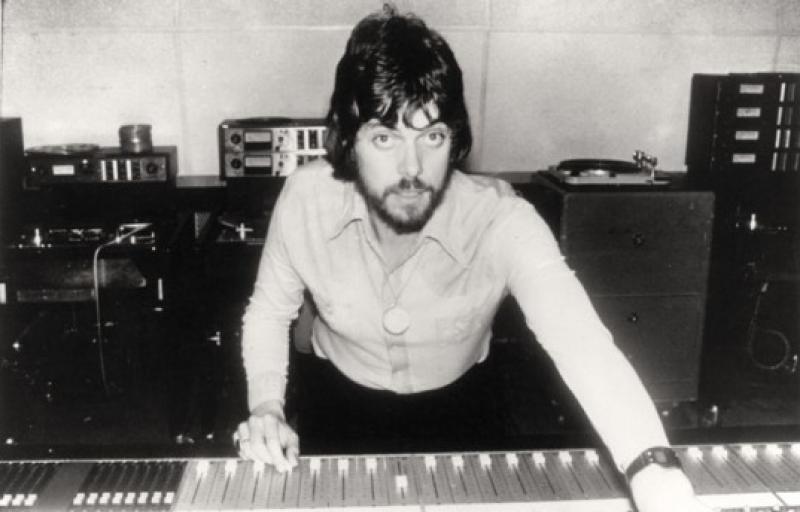The Dark Side of the Moon: From a Classical Perspective | reviews, news & interviews
The Dark Side of the Moon: From a Classical Perspective
The Dark Side of the Moon: From a Classical Perspective
Gloomy indulgence rescued by sublime production values

I’m embarrassed to admit that I’d never listened to The Dark Side of the Moon until a few weeks ago. I’ve heard loads of other esoteric vintage pop, most of it terminally unfashionable and deeply obscure. Growing up in the Seventies and Eighties, I was vaguely aware that Pink Floyd had hit an uncool patch and the album passed me by. I’ve now made up for lost time. Through vintage speakers and scratchy second hand vinyl. Via weedy iPod headphones.
Classical music critics haven’t had an illustrious track record when writing about pop. Back in the Sixties, The Times' William Mann was particularly excited by a chord progression to be found in the Beatles’ Not A Second Time, breathlessly exclaiming that the same sequence was to be found in the closing minutes of Mahler’s Das Lied von der Erde. Not that Lennon and McCartney would have noticed. Alex Ross, writing about Radiohead in the anthology Listen to This, alone manages to balance accessibility and erudition.
You have to concede that it’s all brilliantly played, but you’d expect nothing less
Resisting the urge to spend hours mugging up on Wikipedia, I tried to imagine what I’d write if I'd encountered The Dark Side of the Moon as the latest niche release on a trendy boutique label. Bits of it thrilled me, and long passages left me flatly uninspired. Which got me musing on what can happen when musicians try too hard to articulate the inexpressible. There’s only so much bluster the poor listener can take, before concluding that there’s more truth and wisdom to be found in a two-minute Bach prelude.
The Dark Side of the Moon’s status as an iconic concept album didn't hold water for me – having seamless transitions between tracks doesn’t unify a collection of songs which don’t appear to share many thematic links. I was reminded of watching a performance of Brian Wilson’s newly minted SMiLE in 2004. While enjoyable, that album came across as a ramshackle, disparate sequence of loopy miniatures, clumsily sequenced in a futile attempt to suggest coherence. The final sequence of Abbey Road has never convinced me either, the individual components sketch-like and underdeveloped, despite producer George Martin’s skill at knitting them together. Several chunks of Dark Side raised my blood pressure. Particularly the inert instrumental noodlings which comprise "On The Run", along with the strident vocals heard in both "Time" and "Money".
The one song which springs to dramatic life is "The Great Gig in the Sky", where session singer Clare Torry’s wordless improvisation is magnificent. She alone sounds as if she’s got some emotional investment in the material. Elsewhere, the music too readily feels over-rehearsed and lacking spontaneity. "Money"'s 7/4 rhythms plod along, and the sublime keyboard and guitar harmonies in "Us and Them" are swiftly kiboshed by a honking sax solo.
You have to concede that it’s all brilliantly played, but you’d expect nothing less from an album recorded over many months. Alan Parsons’s sound engineering still impresses, with the taped effects and snatches of speech seamlessly woven into the music like a slab of musique concrete knocked up in 1950s Darmstadt. Listening through decent headphones is a seductive experience. So I won’t chuck the disc onto the charity shop pile. As "Any Colour You Like"’s proggy keyboards fade away, "Brain Damage" and "Eclipse" steal in. The harmonies swell and the music finally soars, attaining the mood of epic, craggy grandeur that it’s been searching for all along.
Read about The Dark Side of the Moon on theartsdesk
rating
Explore topics
Share this article
Add comment
The future of Arts Journalism
You can stop theartsdesk.com closing!
We urgently need financing to survive. Our fundraising drive has thus far raised £49,000 but we need to reach £100,000 or we will be forced to close. Please contribute here: https://gofund.me/c3f6033d
And if you can forward this information to anyone who might assist, we’d be grateful.

Subscribe to theartsdesk.com
Thank you for continuing to read our work on theartsdesk.com. For unlimited access to every article in its entirety, including our archive of more than 15,000 pieces, we're asking for £5 per month or £40 per year. We feel it's a very good deal, and hope you do too.
To take a subscription now simply click here.
And if you're looking for that extra gift for a friend or family member, why not treat them to a theartsdesk.com gift subscription?

Comments
Deryck Cooke is an admirable
There's some very nice